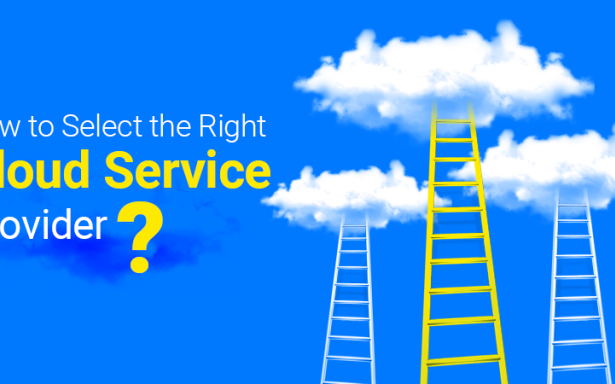Introduction
In today’s digital landscape, businesses of all sizes are embracing cloud computing to enhance efficiency, scalability, and flexibility. However, with numerous cloud service providers available, selecting the right one for your business can be a daunting task. In this article, we will explore the key factors to consider when choosing a cloud service provider, empowering you to make an informed decision that aligns with your business goals and requirements.
Understanding Cloud Service Providers
– Definition of cloud service providers and their role in modern businesses.
– Overview of the benefits of cloud computing, including cost savings, scalability, and improved data security.
Evaluating Infrastructure and Services
– Assessing the provider’s infrastructure and data centres for reliability and redundancy.
– Evaluating the range of services offered, such as Infrastructure as a Service (IaaS), Platform as a Service (PaaS), and Software as a Service (SaaS).
– Considering the provider’s ability to accommodate your business’s specific needs, including storage capacity, computing power, and network bandwidth.
Security and Data Protection
– Understanding the provider’s security measures, including encryption, firewalls, and access controls.
– Evaluating data backup and disaster recovery procedures.
– Verifying compliance with industry-specific regulations and standards, such as GDPR or HIPAA, if applicable to your business.
Performance and Reliability
– Assessing the provider’s uptime guarantees and service level agreements (SLAs).
– Evaluating the provider’s global presence and availability of data centres in relevant regions.
– Checking for performance monitoring and scalability options to ensure optimal performance during peak times.
Cost and Pricing Structure
– Understanding the provider’s pricing models, such as pay-as-you-go or subscription-based.
– Evaluating the cost of storage, bandwidth, and additional services.
– Considering the long-term scalability and potential hidden costs.
Support and Customer Service
– Assessing the provider’s customer support options, including availability, response time, and technical expertise.
– Evaluating the self-service tools and resources provided for managing your cloud environment.
– Checking for the availability of dedicated account managers or customer success teams.
Reputation and Customer Reviews
– Researching the provider’s reputation in the market and their track record of success.
– Reading customer reviews and testimonials to gauge customer satisfaction.
– Seeking recommendations from industry peers or consulting trusted IT professionals.
Conclusion
Choosing the right cloud service provider is a critical decision that can significantly impact your business’s success. By considering factors such as infrastructure, security, performance, cost, support, and reputation, you can make an informed choice that meets your business’s unique needs. Remember, a thorough evaluation and research process is essential to ensure a seamless transition to the cloud and to maximize the benefits of cloud computing.










